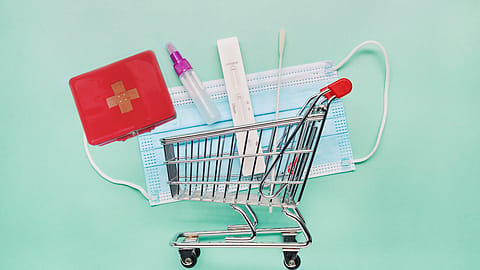New law! All medical device sellers will need registration from Govt
The health ministry will amend the Medical Device Rules 2017 to empower the drug licensing authorities to issue such registration certificates.

All wholesale and retail trade outlets selling medical devices in the country will soon need a registration from the drug regulators of the states they operate. The health ministry will amend the Medical Device Rules 2017 to empower the drug licensing authorities to issue such registration certificates to outlets that sell, stock, exhibit or offer for sale or distribute medical devices including in vitro diagnostic medical devices in India.
According to a draft notification issued by the health ministry on February 9, the application for registration of sale premises should be accompanied by a self certification of compliance of good distribution practices, details of the competent technical staff under whose direction and supervision the sales activity of medical device will take place, brief description of the storage facilities etc.
The licensing will allow the government to monitor the quantum, source and quality of products that are imported into the country as all traders who used to import and sell medical devices will have to obtain the licence and be subjected to scrutiny.
India is among the top 20 markets for medical devices worldwide. The market is expected to increase at a 37% CAGR to reach $50 billion in 2025, from ₹75,611 crore ($10.36 billion) in 2020, IBEF estimates. It also notes that the Indian medical devices sector is driven by 75-80% imports, mainly from the US, China and Germany at the moment. The government has included medical devices as one of the sectors that is eligible for incentives under the Product Linked Incentive scheme to encourage local manufacturing.
The proposed system of registration of sales premises, in addition to quality manufacturing can help India's medical device sector gain more confidence.
Welcoming the development, Sanjiiiv Relhan, chairman of Preventive Wear Manufacturers' Association of India (PWMAI), said the absence of regulation in medical device trade was more visible during the Covid-19 pandemic when anybody was permitted to stock and sell medical devices like pulse oximeter, infra-red thermometer and PPEs irrespective of its quality.
"Every garment manufacturer, every bag manufacturer sold PPE kits during peak pandemic without understanding the value of infection control. With the regulation of sales, patient safety will be ensured and good distribution practices will be implemented along with good manufacturing practices," Relhan notes. "It is a win-win situation for everyone, patients, manufacturers of quality products and exporters. The more we become quality oriented, the more we upgrade, and our acceptability will increase globally," he adds.
Recommended Stories
Incidentally, both manufacturing and sale of most medical devices remained unregulated until recently. The government first notified all medical devices as drugs to have a regulatory control over the manufacturing of medical devices. The move to oversee distribution has come as the next step. "When regulations were announced for manufacturers we had suggested that without controlling the sales, regulation of only manufacturing won't be of much help," Rehlan said.
The registration will also help the government have a better grip on the quantum, source and quality of products that are imported into the country as all traders who used to import and sell medical devices will have to obtain the license and be subjected to scrutiny.